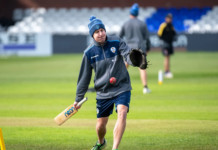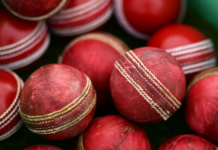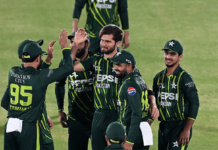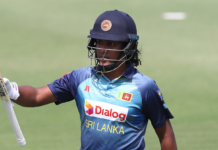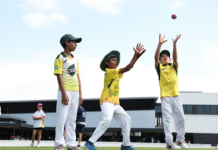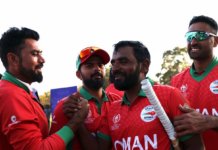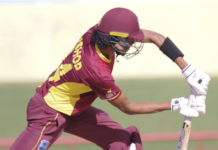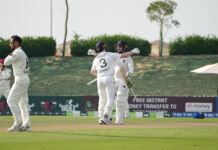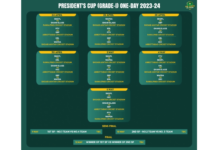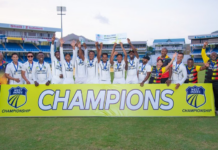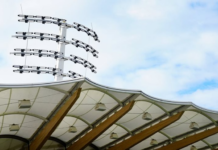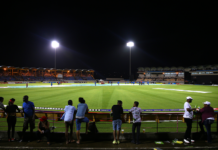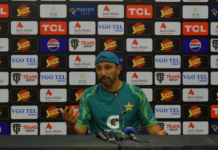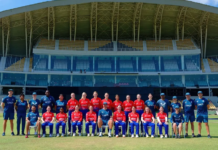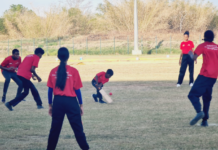Photo Credit: ICC
United Arab Emirates (UAE) players Amir Hayat and Ashfaq Ahmed have been banned from all cricket for eight years each after the ICC Anti-Corruption Tribunal found them guilty of breaching the ICC Anti-Corruption Code.
The bans are backdated to 13 September 2020, when they were provisionally suspended for corrupt conduct in relation to the ICC Men’s T20 World Cup Qualifier 2019 in the UAE.
Following a full hearing and presentation of written and oral argument, the Tribunal found both Amir and Ashfaq guilty of:
Article 2.1.3 – Seeking, accepting, offering or agreeing to accept any bribe or other Reward to: (a) fix or to contrive in any way or otherwise to influence improperly the result, progress, conduct or any other aspect of any International Match; or (b) ensure for Betting or other corrupt purposes the occurrence of a particular incident in an International Match.
Article 2.4.2 – failing to disclose to the ACU (without unnecessary delay) the receipt of any gift, payment, hospitality or other benefit, (a) that the Participant knew or should have known was given to him/her to procure (directly or indirectly) any breach of the Anti-Corruption Code, or (b) that was made or given in circumstances that could bring the Participant or the sport of cricket into disrepute.
Article 2.4.3 – failing to disclose to the ACU (without unnecessary delay) all gifts (whether monetary or otherwise), hospitality and/or other non-contractual benefits offered to a Participant that have a value of US$750 or more, whether or not the circumstances set out in Article 2.4.2 are present, save that there shall be no obligation to disclose any (i) personal gifts, hospitality and/or other non-contractual benefits offered by or on behalf of any close friend or relative of the Participant, (ii) any food or beverage gifts or (iii) cricket hospitality gifts in connection with Matches the Participant is participating in.
Article 2.4.4 – failing to disclose to the ACU (without unnecessary delay) full details of any approaches or invitations received by the Participant to engage in Corrupt Conduct under the Anti-Corruption Code.
Article 2.4.5 – failing to disclose to the ACU full details of any facts or matters that came to his attention that may evidence Corrupt Conduct under the Code by another Participant.
Alex Marshall, ICC General Manager – Integrity Unit, said: “Both Amir and Ashfaq had played cricket at the highest level for long enough to understand the threat from match fixers.
“The two UAE players, attended several ICC anti-corruption education sessions, and knew how to avoid becoming involved in any corrupt activity. They failed in these obligations and let down their teammates and everyone involved in UAE Cricket, in their adopted country.
“Their lengthy ban should serve as a warning to others.”
The decision which addresses both liability and sanction (and which has been redacted to protect the identities of the ICC’s witnesses and other third parties) is available here.
The media release on the charges is available here.
